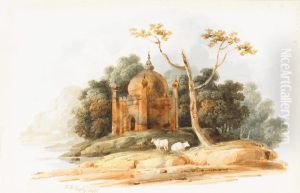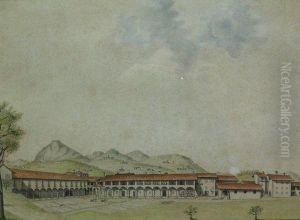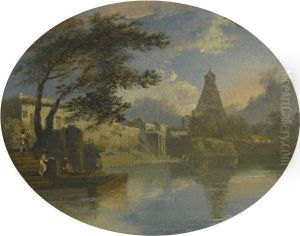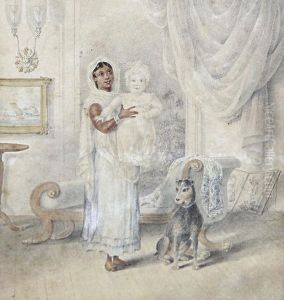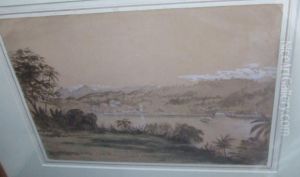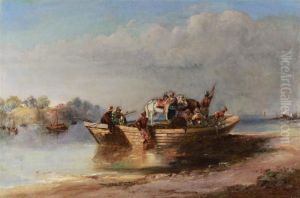Charles Baronet D'Oyly Paintings
Sir Charles D'Oyly, 7th Baronet, was a British public official and amateur artist born in Murshidabad, India, in 1781. He was the son of Sir John Hadley D'Oyly, 6th Baronet, and his wife, Charlotte, who were part of the British colonial establishment in India. D'Oyly grew up in a time when the British East India Company was rapidly expanding its control over the Indian subcontinent, a context that deeply influenced his life and work. He was educated in England but returned to India in 1797 to begin his career in the civil service of the British East India Company.
D'Oyly served in various administrative capacities in Bengal, becoming known for his integrity and administrative skills. However, it is his work as an artist for which he is best remembered today. D'Oyly was a prolific artist who captured the landscapes, people, and daily life of India with a keen and affectionate eye. His work provides a valuable visual record of early 19th-century India, seen through the lens of British colonialism. He was particularly noted for his landscapes and cityscapes, many of which include detailed and lively scenes of Calcutta (now Kolkata), where he was stationed for many years.
In addition to his own work, D'Oyly played a significant role in fostering the arts in India. He was instrumental in the establishment of the Calcutta Art Society in 1828 and encouraged local artists, including several Indian painters who became prominent in their own right. D'Oyly's efforts helped lay the groundwork for the development of modern Indian art.
D'Oyly's artistic legacy is preserved in several collections, including the British Library and the Victoria and Albert Museum. His published works, such as 'Views of Calcutta and its Environs' and 'Antiquities of Dacca,' are considered important historical documents that offer insight into the cultural and social life of India during the British Raj. Sir Charles D'Oyly died in 1845, but his contributions to Indian art and British colonial history continue to be recognized and studied.
![View Of Benares [varanasi] Along The River Ganges, Uttarpradesh, India](https://www.niceartgallery.com/imgs/507064/s/charles-baronet-doyly-view-of-benares-varanasi-along-the-river-ganges-uttarpradesh-india-5834ba48.jpg)
